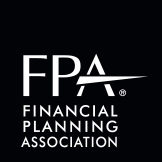By Anna Rappaport, F.S.A., M.A.A.A.
COVID-19 created major new health risks for Americans at all ages and, at the same time, had a major impact on the economy and daily life, exacerbating a wide variety of retirement risks. The retirement system faced major challenges before the pandemic, but the pandemic and its consequences may change the way people look at retirement issues. This article reviews how COVID-19 changed the economic environment, the work environment and the situation for retirees. It provides insights into employer responses to date and a discussion about what they might do in the future. Organizations that make major changes in employment strategies will also need to revisit their retirement benefits strategies. This article further provides a discussion of retirement risks based on recent Society of Actuaries (SOA) research and includes COVID-19 impacts on the risks. It brings together consideration of retirement risks, the environment before COVID-19, changes in that environment and possible future directions for retirement benefits. In 2020, SOA released a new version of its “Post-Retirement Risk Chart” and several reports on retirement risk and COVID-19. These reports were also used to inform this article.
https://www.iscebs.org/Resources/BQ/Pages/BQ-executive-summaries-2021.aspx






